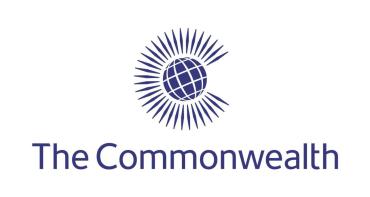From 2017 to 2023, the Commonwealth Climate Finance Access Hub (CCFAH) has supported the Government of Antigua and Barbuda in mobilising approximately US$10,013,006 for projects in agriculture and infrastructure. A total of 38 capacity building initiatives have been organised involving approximately 551 government officials and stakeholders.
The CCFAH supported the Antigua and Barbuda led regional project worth USD 20 million funded by the GCF on strengthening the resilience of three Caribbean countries - Antigua and Barbuda, Grenada and Dominica, to climate change-related threats by improving the hurricane resilience of community buildings, homes, and businesses, and through flood prevention measures. Each country was allocated US$ 6 million, divided as follows: Government sector: US$3 million; Private sector: US$2 million and NGO sector: US$1 million; with US$ 2 million to support capacity building of transparent decision-making processes, monitoring and evaluation, gender mainstreaming and other policy-level interventions.
The CCFAH provided capacity building, policy support and proposal development to support NDC implementation including through concept note development on the just transition of the workforce and community-driven ecosystem-based adaptation (EbA) actions as well as supporting the operationalisation of the Sustainable Island Resource Framework Fund (SIRF Fund), including updating reviewing key operational manuals (e.g. monitoring and evaluation manual, gender and environmental and social safeguards manual and project evaluation framework and updating the operational manual for grants.
The Commonwealth Secretariat also co-financed with the NDC Partnership through their Partnership Action Fund (PAF) a feasibility study for a Gender-responsive blended financing micro-equity window under the SIRF Fund, to build climate resilience in small to medium-sized businesses, especially in the agriculture sector.
The Commonwealth Climate Finance Access Hub (CCFAH) has successfully supported the Government of Barbados in mobilising approximately US$1,625,504 worth of climate finance in the sectors of agriculture and industry. An additional US$150,000 in co-financing was mobilised. CCFAH had an adviser deployed in Barbados from August 2017 to September 2021, with 7 capacity building initiatives organised involving approximately 140 government officials and stakeholders.
The Commonwealth Climate Finance Access Hub (CCFAH) has been supporting the Government of Belize since August 2020. As an institutional member of the NDC Partnership, under the Climate Action Enhancement Package (CAEP), the Secretariat through CCFAH, has successfully carried out a climate finance landscape study as well as development of a climate finance strategy for the country for 2021–2026. Following this, the CCFAH supported the Ministry of Finance, Economic Development, and Investment with the establishment of its Climate Finance Unit (CFU), thus strengthening its institutional capacity and enhancing its access to climate finance from sources such as the Green Climate Fund.
The CCFAH has supported Belize with mobilizing US$569,313 in climate finance for a project in the forestry and land use sector. To date, 7 capacity building initiatives have been organised involving 199 government officials and stakeholders.
The Commonwealth Climate Finance Access Hub (CCFAH) has supported the Government of Fiji through extensive human and institutional capacity-strengthening initiatives including development of a blueprint for the establishment of a Project Development Unit (PDU), use of Earth observation data to support climate finance proposals under the CommonSensing project and Climate Finance Writeshop Training using live concept notes to demonstrate the practical application of data and information from the CommonSensing Platform. The country is also a beneficiary country under “Strengthening Capacities In The Use Of Geospatial Information For Improved Resilience In Asia-Pacific And Africa”, funded by NORAD which is a continuation of the work under CommonSensing.
Feasibility studies for decarbonisation of public bus transport as well as use of blockchain for parametric insurance were conducted.
CCFAH has supported Fiji with mobilizing US$985,698 in climate finance, including finance for an Electric Shuttle Bus project. A pipeline of projects valued at approximately US$60,468,204 is currently at various stages of development led or supported by the CCFAH. To date one capacity building initiative has been organised involving 40 government officials and stakeholders.
The Commonwealth Climate Finance Access Hub (CCFAH) is supporting the Government of Grenada and stakeholders engaged in, and responsible for, implementing the defined climate policy and resilience strategy through the provision of technical support for the establishment of the policies and measures to address policy gaps, institutional strengthening and ultimately enhanced access to climate finance.
Under the NDC Partnership Action Fund (PAF), the Hub supported the Government in the development of a prioritisation document for the country’s pipeline of climate change projects and consequently supporting with the development of 3 priority project concept notes across the forestry, health and energy sectors, and the development of a Resource Mobilisation Strategy (RMS) for the country’s Nationally Determined Contribution (NDC) Implementation Plan.
The Commonwealth Climate Finance Access Hub (CCFAH) supported the Government of Guyana from January 2019 – March 2020, in enhancing the country’s ability to access climate finance by strengthening and supporting the establishment of institutional mechanisms and modalities to seek, receive and utilise international climate finance. This included provision of inputs to the country’s Climate Finance Strategy.
The Commonwealth Climate Finance Access Hub (CCFAH) has successfully supported the Government of Jamaica from March 2017 – 2021, in mobilising approximately US$8,507,000 worth of climate finance for 15 projects covering several areas including gender, forestry, agriculture, private sector, civil society, national and sub-national adaptation planning, and enhancing transparency frameworks, with an additional US$159,000 in co-financing. Under the readiness project ‘Facilitating a Gender Responsive Approach to Climate Change Adaptation and Mitigation’ a gender assessment was conducted which facilitated an analysis of the practical gender and climate change linkages in Jamaica and recommendations for action. The assessment informed the development of the country's first Gender and Climate Change Strategy and Action Plan (GCCSAP) in 2022.
To date 7 capacity building initiatives have been organised involving 150 government officials and stakeholders.
Under the Climate Action Enhancement Package (CAEP), the CCFAH also supported the country in conducting a socio-economic and financial implications assessment of climate change (past and projected), through the development of climate expenditure analyses and modelling.
Under the NDC Partnership Climate Action Enhancement Package (CAEP) the Commonwealth Climate Finance Access Hub (CCFAH) supported Eswatini in conducting a Climate Public Expenditure and Institutional Review (CPEIR) within the national fiscal and budgetary processes as well as the development of a Strategy to Enhance Private Sector Engagement in the country’s NDC Implementation. Technical assistance was also provided to review the revised National Gender Policy 2020-2030 which led to a revised framework for gender equality and equity. The policy outlines the country’s vision for gender equality and is designed to guide stakeholders and institutions at all levels, on how to advance gender equality and equity and mainstream gender across all sectors.
The CCFAH has also supported the country by mobilising US$122,238 in climate finance for projects focusing on women in agriculture and climate governance. To date, seven capacity building initiatives have been organised involving 30 government officials and stakeholders.
As of October 2022, the Commonwealth Climate Finance Access Hub (CCFAH) has appointed a national adviser to provide technical assistance towards the realisation and implementation of the country’s climate resilient strategy and with finance mobilisation. CCFAH will assist the country with designing and establishing a National Climate Change Trust Fund and a climate insurance mechanism for relevant economic sectors, along with a detailed financial analysis and operational mechanism in association with the Government and an insurance company.
A pipeline of projects valued at approximately US$10,000,000 is currently at the concept note stage of development led or supported by the CCFAH.
The Commonwealth Climate Finance Access Hub (CCFAH) first opened its door in Mauritius in September 2016. As the central Hub it receives and manages requests for capacity and technical assistance to secure climate finance. In 2017 the Hub began deploying experts to ministries of finance and environment to help developing countries access the billions of dollars pledged for effective climate action.
Serving both as the host and a beneficiary country for the technical assistance provided by CCFAH, approximately US$186,543,984 worth of climate finance has successfully been mobilised through this support for projects in sectors such as water, health, and blue economy. Of this sum, approximately US$182 million in concessional loans. To date, 7 capacity building initiatives have been organised involving 182 government officials and stakeholders. This includes the inaugural Climate Negotiations Training with government officials and stakeholders which was convened between 19 April – 12 May 2023.
The Commonwealth Climate Finance Access Hub (CCFAH) has successfully supported the Government of Namibia in securing approximately US$7,878,669 worth of climate finance for projects in climate governance, energy, forestry and land use, agriculture, and youth. Moreover, approximately 267 Government officials and stakeholders have been beneficiaries of five capacity building initiatives supported by CCFAH.
The CCFAH is also providing short-term assistance to conduct a Gender, Youth and other Marginalised Groups’ Assessment and Action Plan of the project proposal entitled ‘Strengthening Climate Information and Early Warning System for Enhanced Adaptation Planning and Resilience in Namibia’ to support the country’s submission to the Green Climate Fund.
As of January 2023, the Commonwealth Climate Finance Access Hub (CCFAH) has appointed a national climate adviser to provide technical assistance to take forward and develop a pipeline of climate finance projects and secure international funding for adaptation and mitigation projects.
Moreover, approximately 80 Government officials and stakeholders have been beneficiaries of two capacity building initiatives supported by CCFAH. These initiatives focused on climate change capacity building needs assessment and a climate change awareness workshop on Impacts of Climate Change on Selected Sectors of the Economy and Adaptation Measures.
As of April 2019, the Commonwealth Climate Finance Access Hub (CCFAH) has successfully supported the mobilisation of approximately US$7,084,221 worth of climate finance for projects across various sectors including around climate governance, agriculture, fisheries, gender, infrastructure and the private sector (green and sustainable finance). To date, three capacity building initiatives have been organised involving 59 government officials and stakeholders.
As of September 2020, the Commonwealth Climate Finance Access Hub (CCFAH) has been providing technical assistance to the Government of Seychelles aimed at developing a pipeline of bankable projects for funding, support enhancing coordination of climate finance mobilisation efforts as well as strengthening capacities within Government departments and related agencies. The Commonwealth National Climate Finance Adviser (CNCFA) is contributing to the development of Measuring Reporting and Verification Framework and supporting in building capacity to advance the National Adaptation Planning process in the Seychelles. The CCFAH will also be hosting a Climate Negotiations Training from August 1-3 with government officials and other stakeholders.
Nearly 73 Government officials and stakeholders have been beneficiaries of 5 training initiatives led or supported by CCFAH.
As of February 2021, the Commonwealth Climate Finance Access Hub (CCFAH) has been providing technical assistance to the Government of Solomon Islands, with the country also being a beneficiary under the CommonSensing project. The country is also a beneficiary country under “Strengthening Capacities In The Use Of Geospatial Information For Improved Resilience In Asia-Pacific And Africa”, funded by NORAD which is a continuation of the work under CommonSensing project.
Climate Finance Writeshops have been convened to strengthen climate finance skills, using live concept notes to demonstrate the practical application of data and information to enhance the evidence base and climate rationale in funding proposal.
CCFAH contribution has involved supporting a review of the Climate Change policy, Climate Finance Writeshop Trainings, assistance of the National Transport Fund with accreditation to the GCF, and development of a project proposal pipeline.
CCFAH has mobilised approximately US$35,680,000 in climate finance for projects in climate governance, blue economy, and energy. To date, seven capacity building initiatives have been organised involving 78 government officials and stakeholders.
The Government of Tonga, with the support of the Commonwealth Climate Finance Access Hub (CCFAH), has successfully mobilised approximately US$4,083,254 worth of climate finance for projects across sectors such as climate governance, health, energy, and blue economy.
In addition to provision of support towards operationalising the Tonga Climate Change Trust Fund, approximately 374 Government officials and stakeholders have been beneficiaries of twelve training initiatives led or supported by CCFAH.
The Commonwealth Climate Finance Access Hub (CCFAH) has appointed a national climate adviser to Tuvalu to provide technical assistance to take forward and develop a pipeline of climate finance projects and secure international funding for adaptation and mitigation projects. In addition to this, the adviser will support the Tuvalu Climate Change Disaster Survival Fund and the development of climate insurance mechanisms.
CCFAH contributions include around Climate Finance Writeshop Trainings held in December 2021 as well as provision of inputs to the Vanuatu Climate Finance Roadmap. To date, one capacity building initiative has been organised involving 12 government officials and stakeholders. The country is also a beneficiary country under “Strengthening Capacities In The Use Of Geospatial Information For Improved Resilience In Asia-Pacific And Africa”, funded by NORAD which is a continuation of the work under CommonSensing project.
The Commonwealth Secretariat through CCFAH supported Vanuatu in its submission to the UN General Assembly in seeking an opinion from the International Court of Justice.
The Commonwealth Climate Finance Access Hub (CCFAH) provision of technical assistance to the Government of Zambia from July 2020. CCFAH has mobilised US$21,672,246 in climate finance for projects in water, agriculture, and youth. To date, seven capacity building initiatives have been organised involving 130 government officials and stakeholders.
Zambia was also a beneficiary of CCFAH services under the NDC Partnership Climate Action Enhancement Package (CAEP) which included conducting a climate finance mapping along with the development of a baseline report on monitoring, reporting and verification (MRV) of climate finance for the country’s NDC implementation.




